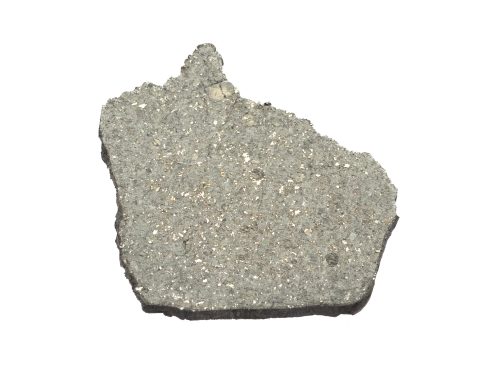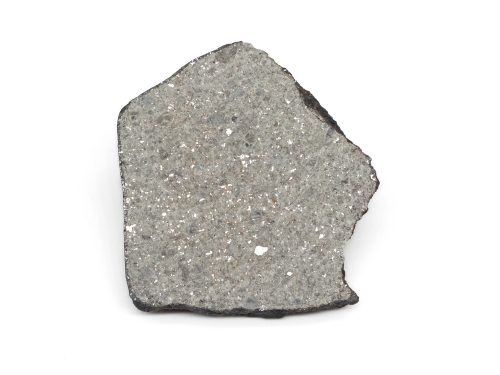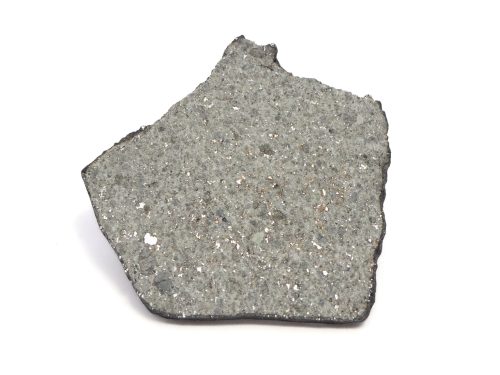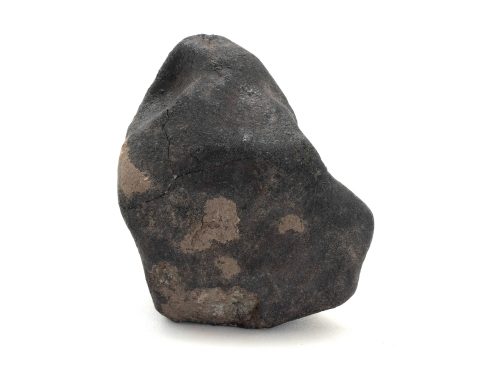Mvskoke Merkv
Mvskoke Merkv (muh-skō-gee myth-guh).
The Muscogee Nation’s homeland was originally in what is now Tennessee, Alabama, western Georgia, and parts of northern Florida. Their people were forcibly removed to Indian Territory, now Oklahoma, in the 1830s during the Trail of Tears.
At 3:37 A.M. on January 20, 2023 a fireball was reported to be seen streaking the sky over Muskogee, Oklahoma. Meteorite hunters descended upon the area, which is typically cold and overcast in January, immediately. The hunters, which included Loren Miller, Steve Arnold, Pat Branch, Terry Scott, and Roberto Vargas, found that to be true as they scrutinized Doppler radar data to triangulate the meteorite’s strewnfield. They collectively recovered five stones. Several days after the initial hunting team left the area, a local discovered a hammerstone that struck a barn roof weighing 388 grams, which was broken in two pieces. The six total recovered stones weigh 1,418.7 grams. The five specimens collected by the initial team are 309.8 grams, 260.3 grams (recovered by a land owner), 262.7 grams, 127.5 grams and 70.6 grams. The 309.8-gram stone was prepared into slices, to be sold into private collections. The 127.5-gram specimen is in its finder’s collection, where it will remain indefinitely. The 260.3-gram, the 262.7-gram, and the 70.6-gram stones were acquired by Aerolite Meteorites; subsequently, the 260.3-gram was purchased by the University of Oklahoma (OU) for public display. Aerolite is honored to have donated for the classification and study to the Buseck Center for Meteorite Studies Arizona State University and to the Muscogee Nation.
A slice of the marvelous witnessed fall was donated back to the Muscogee Nation by OU; the university also contacted the Nation’s leadership with a request to assist in officially naming the meteorite. The Nation suggested “Merkv,” which means “blessings” in their language.
Showing all 4 results



